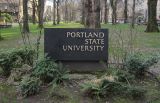A group of researchers led by Dr. Mark Post, a physiology professor at the Maastricht University, has developed the world's first lab-grown beef burger. This unique 5-ounce burger, costing around, $332,000, will be unveiled and eaten at a news conference in London, Monday, 05 August.
The burger has been made with meat grown in Petri dishes in a lab.
According to BBC, scientists took stem cells from a biopsy of a living cow and then converted them into small strands of muscle tissue at an institute in Netherlands. It was later combined to make a patty.
Post said that a single cell sample is sufficient to create up to 20,000 tons of meat in a lab.
The Dutch scientist created this lab-grown burger in an attempt to reduce the impact of meat production on the environment and to provide a solution to global food shortage. The laboratory-based meat production can effectively stop raising and killing billions of livestock which contributes 18 percent to greenhouse gas emissions.
"Cows are very inefficient, they require 100g of vegetable protein to produce only 15g of edible animal protein," Post said. "So we need to feed the cows a lot so that we can feed ourselves. We lose a lot of food that way. [With cultured meat] we can make it more efficient because we have all the variables under control. We don't need to kill the cow and it doesn't [produce] any methane."
Post said that the production of cultured meat can begin in a decade or two and can feed the rising population, meeting growing demand in countries such as China and Brazil. According to the U.N. Food and Agriculture Organization, demand for meat is expected to increase by more than two-thirds by 2050.
"What we are going to attempt is important because I hope it will show cultured beef has the answers to major problems that the world faces," Post said. "Our burger is made from muscle cells taken from a cow. We haven't altered them in any way. For it to succeed, it has to look, feel and hopefully taste like the real thing."









